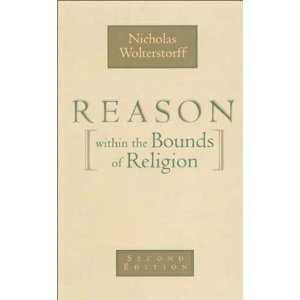What?!
But, on second thought, maybe I should not be too surprised:
In Kyle Idleman’s popular not a fan he states “that the reason that we were put on this planet is to answer this one question,” that being, “What if there really is a heaven and a hell, and where I spend eternity comes down to this one question?” (p. 21, italics his).
For Kyle, Christianity is about reward and punishment. Either we will accept Jesus and believe (and so receive the reward of heaven) or we reject Jesus and disbelieve (and so suffer the punishment of hell). Further, throughout the book Kyle is at pains to emphasize how Christianity “costs” a great deal, such as how Christians should hate everyone else by comparison to how much they love God and how, as a Christian, I should “empty myself of me” to make space for the Holy Spirit. (pp 65 & 95).
So where Christianity is about gaining reward and avoiding punishment, and where loving God means (practically) hating others and effacing myself, it’s not surprising to find something like www.withoutjesusisuck.com (WJIS). Both exemplify a key notion in evangelical Christianity: at best you’re a problem; at worst you’re worthless.
But this should raise a few questions:
Why would God create something that “sucks”? Why, indeed, would God love something that “sucks”? And why would God purportedly die for something that “sucks”?
Now many evangelicals would be quick to interject: “No! God created us as wonderful, and then we messed it up by sinning. While we sin we can do nothing right. And the fact that God loves us so much that God gave up his only son to die for us and take away our sin, that is the wonder and mystery of God’s love that we can never comprehend.”
Yet the upshot of an incomprehensible situation, obviously, is that we can’t figure it out. So we have only two options: either believe or don’t. In fact, we are right back with Kyle Idleman’s two choices. And really, if you can actually believe that God is real, then practically there is no choice: no sane or moral person would choose not to be a Christian. Pretty nifty how that works, huh?
Not really. I think it’s crap (and I’m not even Scottish).
First, the idea that God’s love for us is incomprehensible is both bogus and unbiblical. Bogus because if God’s “love” were completely unrelated to human love then it would be impossible to experience it as love—it would not be “love” in any sense that we know it. Unbiblical because the Bible is totally clear on this point: in order to be in right relationship with God we can and must experience God’s love, we must “taste and see” God’s goodness [1. Psalm 34: 8 is only one example.]. And this experience must, at minimum, be comprehensible and “square with” our general understandings of love.
Second, God loves us now, as we are. For as I’ve tried to argue elsewhere, sin is not the problem but its symptom. The problem? Not being in right relationship with God, and a major part of the solution (along with having better, truer understandings of who God is, who humans are, and how the two should relate) is that we experience God’s love and understand it as such.
Third, it is clear that I can and do act, think, etc., in ways that are good. Not “good” in some sort of absolute, modernist way—no one is arguing for that. No, in the same way that Postmodernism never means “absolutely anything goes” (outside of advertisements for pizza toppings), so “doing right things” is not a claim to absolute goodness that challenges either God’s holiness or the necessity of Jesus dying in fulfillment of the covenant.
So you don’t suck, and neither do I.
God loves you, and God loves me. God loves us now, as we really are, and also as we best could be, as seen through the lens of God’s love and God’s truth.
And that’s the T-shirt we need.


